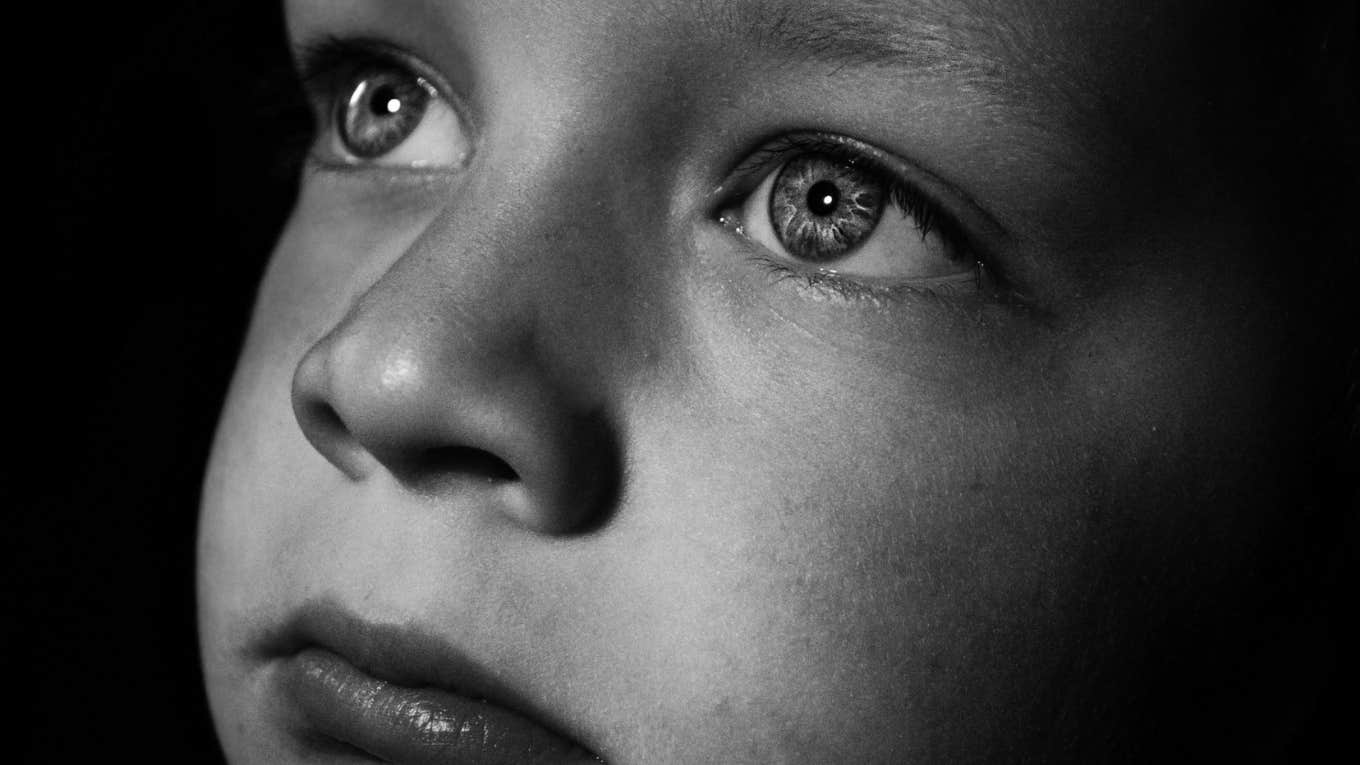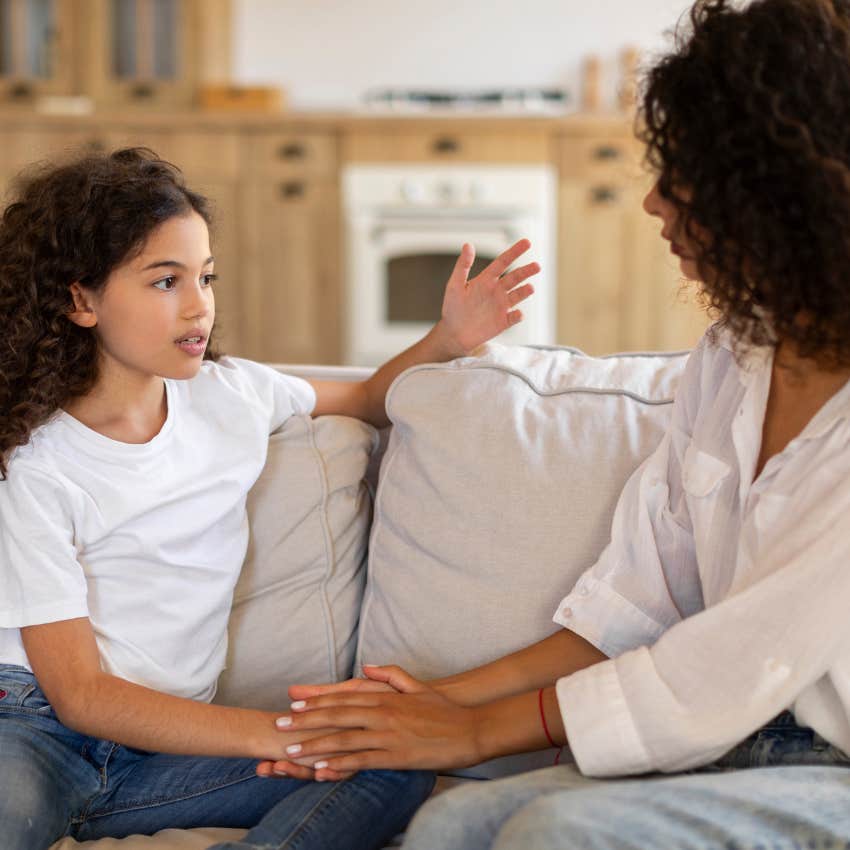According To Experts, These 3 Childhood Wounds Come Up Most In Therapy
The same childhood emotional wounds often resurface in adult therapy sessions.
 PublicDomainPictures | Canva
PublicDomainPictures | Canva You've probably said or thought it many times: "If I only knew then what I know now." This applies to personal and professional regrets, sure. But it also applies to the emotional baggage of childhood trauma.
Research indicates that childhood wounds frequently addressed in therapy include trauma-related experiences, as well as adverse childhood experiences. These experiences can lead to challenges in attachment styles, emotion regulation, and overall well-being.
According to experts, these childhood wounds come up most in therapy:
1. Having neglectful parents
Adults complain in therapy about the impact of neglectful parents in childhood. The old belief was that children were to be seen and not to be heard. Verbal or emotional expression was not welcomed and at times, punished. Laughter as well as crying was limited in the home.
The most damage was caused by parents who were not involved and especially did not demonstrate an interest in their child, or did not verbally or behaviorally express love for the child, and were emotionally unavailable. The neglect and disregard led to feelings of shame, worthlessness, and not being good enough. It might even cause physical illness later in life.
The lack of a positive presence of a parent and the absence of words of affirmation led to a need to heal in adulthood with forgiveness of the parents’ inabilities to meet the adult's needs as a child: acceptance and letting go of the past memories.
Once the healing takes place, the adult in therapy can begin to shift by learning to value themselves, and they are no longer tethered to the feelings of disappointment, anger, and hurt toward their parents' inadequacies and neglect.
—Dr. Susan Pazak, clinical psychologist and life coach
2. Being a parentified child
 fast-stock / Shutterstock
fast-stock / Shutterstock
As a trauma psychologist in New York, I find of the most common issues that is discussed in therapy is the person’s childhood. And within concerns addressed in childhood, the most common is being the "parentified" child.
This is the child who faces increasing responsibility for taking over the everyday tasks in a family. These are often the responsibilities that in other families are performed by the parents, hence the term "parentified" child.
This goes way beyond routine household chores which can be helpful to the child in creating a sense of efficacy. This is a level of responsibility that feels overwhelming because the child doesn’t feel they have a choice, in being asked to do things that are often beyond their abilities to do successfully.
Thus, these responsibilities create inner turmoil and stress in the child, leading to resentment in the adult, who continues this pattern in their relationships, making them that much less satisfying. For example, if you grew up as the little caretaker, you may grow up to be attracted to those who need to be taken care of, further fueling resentment, anxiety, and perhaps the need to self-medicate.
—Patricia O'Gorman, PhD, psychologist, author, speaker
3. Having parents who made them feel they weren't good enough
My adult clients who are frustrated that they can't complete an artistic project say their parents led them to believe that they weren't good enough at what they loved to do. This could range from a mom critiquing (or even doing) her young child's art or science project to a dad who is critical by nature or takes out his frustrations on his children.
I hear things like, "He thought I couldn't do anything right." Or "I can't write. My mom always said so." Or the biggest one: “My parent told me not to write (or draw or sing) because there was no money in it.” I heard that one myself, but I proved my parent wrong.
If a parent gives the impression that their child can't do something alone by stepping in to help navigate every misstep, heartache, or bad grade, a child won't learn how to improve on mistakes, communicate, and advocate for themselves.
That can lead to self-doubt or confusion about who they are and what they want in life. Our need to protect them early in life will set them up for bigger problems later.
When I use active visualization with my clients, we usually uncover that they block themselves because of the fear that their parents unwittingly gave them. That inner child won’t let them finish a project because it’s still scared.
My process works on healing that inner child so the client can come into their own success, their own creativity. But why wait? It's important to let our kids succeed or fail on their own.
Mistakes breed both success and confidence. Heavy criticism or even light helicopter parenting doesn't allow children to see what they can do well, or even how to do it.
Overcontrolling our children, or feeling anxious about them (they can tap into our energy and mannerisms ... think eye rolls), can lead to an anxious child who worries or a depressed child who won't try because they're afraid they'll fail.
Love doesn't equate to worry, and we love them no matter what, right? Let them fail. Let them fix it. Let them dust themselves off and try again. Our confidence in them leads to confidence in them.
—Kathy Ramsperger, creativity and relationship coach, author
Carter Gaddis is a writer and editor who spent 24 years as an award-winning sportswriter for newspapers in Florida and for various online publications, including ESPN, Parenting Magazine, and the St. Petersburg Times.

